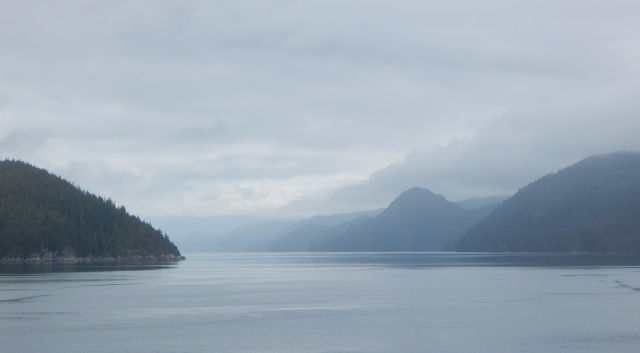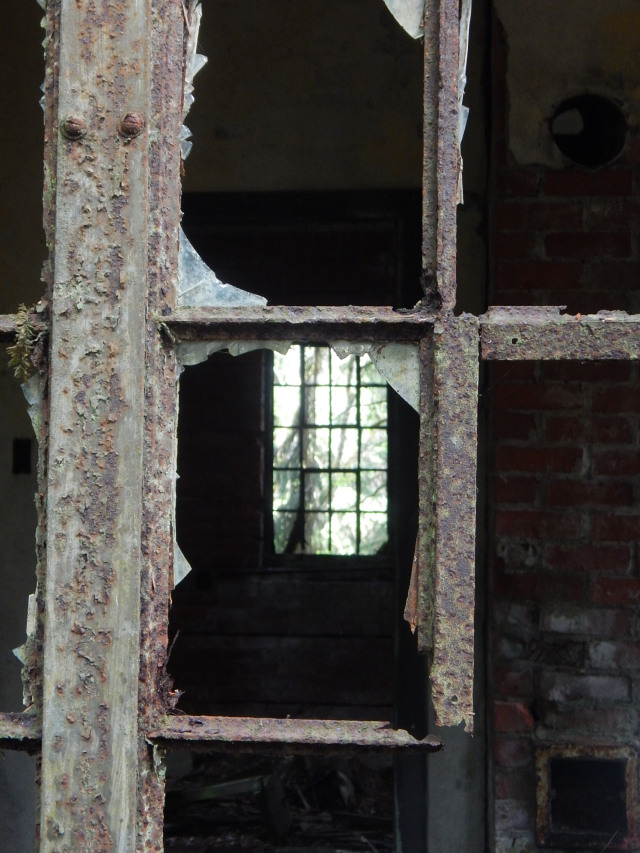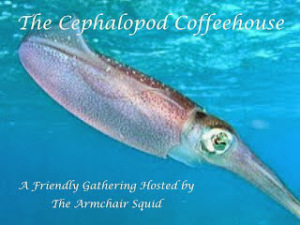In terms of trying to share the scale of ancient growth trees, Mark’s video follows a tree from trunk to top, and his video works better than my words.
As I close out my blogs written aboard the Aurora Explorer, I feel guilty having experienced so much and shared so little. My days were spent on the deck – watching the water, watching the shore, watching for wildlife, and drinking coffee. Happy Hour began at 4:30. With no Internet connectivity, I was out of touch in every sense of the word. I took a few notes but noted nothing in detail. Maybe it was the fog or the mist sinking in through my skin. Without looking at a map, I cannot tell you what day we boarded or where we went. I turned my life over to the very able crew and vegetated.

(The word ‘vegetated’ reminds me of my very best Halloween costume. I was seven months pregnant, and I went to a party dressed in a long-sleeved, purple tee-shirt and tights. Green felt leaves atop my head completed my resemblance of an eggplant. At the time, long before flaunting your ‘bump’ was fashionable, my costume was (much to my delight) shocking. Obviously years and years before the Annie Leibovitz photo of Serena Williams – seriously pregnant and nude on the August cover of Vanity Fair.)
Our visit to tiny Yorke Island was an interesting slice of history. Watching war clouds gather over Europe in 1937, the Canadian government decided to build a fort on Yorke Island to defend the west coast. The purpose was to protect the cities of Vancouver and Victoria. In 1942 the original 4.7-inch guns, which would have been ineffective against a hostile submarine, were replaced with more modern 6-inch guns.

Remains of the Day
Being posted on a small, 136-acre island which had no fresh water, no flush toilets, no buildings, no willing women or pubs was indeed hardship duty. Instead of ‘build it and they will come,’ the posting was more like ‘come and build it.’ Once in place, the soldiers were were isolated – a penal colony of sorts. It was only after one conscript committed suicide that the government thought that occasional shore leave might be beneficial to the soldiers’ mental health.

Windswept and cold
The second stanza of John Mansfield’s poem “Sea Fever” seems to catch the tone of life on the water: I must go down to the sea again, for the call of the running tide / Is a wild call and a clear call that may not be denied:/ And all I ask is a windy day with the white clouds flying , / And the flung spray and the blown spume, and the sea gulls crying.
Share this:





